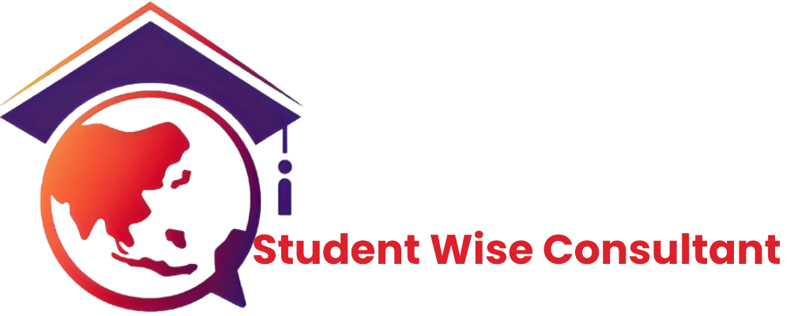Study in Canada
Let’s explore the Canada as your next study destination. For students who are planning to continue their higher education in Canada, Student Ways brings you the best-tailored experience and International study options. Our team will be on top of everything, from locating the best University to the best suitable program and scholarships
- Facts About Canada
- Canada in-Demand Courses
- World-class Education
- Affordable Course Fees and Living Cost
- Scholarships Available
- Work Opportunity During and Post Study
- Co-op Programs
- Coveted Jobs and Lucrative Salaries
- Welcoming People and Cultural Diversity
- Immigration Benefits
- Logistics & Supply Chain Management.
- Computer Science and Information Technology
- Business and Management
- Engineering (especially Civil, Mechanical, and Electrical Engineering)
- Health Sciences (especially Nursing and Physical Therapy)
- Biotechnology and Life Sciences
- Hospitality and Tourism Management
- Environmental Sciences and Sustainability
- Creative Arts and Design
- Agriculture and Forestry
- Education and Teaching
- Sports Business Management.
- Duration and levels of study
- Academic requirements
- Offered Intakes
- English Language Requirements
- Basic Document Checklist
anada offers a wide range of academic programs at various levels of study, including: Certificate and Diploma programs:
- These programs typically last one to two years and offer specialized training in a particular field of study.
- Bachelor’s degree programs: These programs generally take four years to complete and provide students with a comprehensive education in a particular field of study.
- Postgraduate Diploma and Certificate programs: These programs typically last one to two years and provide students with specialized training in a particular field of study.
- Master’s degree programs: These programs usually take one to two years to complete and are designed for students who have already completed a bachelor’s degree.
- Doctoral degree programs: These programs typically take three to five years to complete and provide students with in-depth knowledge and research skills in a particular field of study.
The academic requirements for taking admission to a Canadian university vary depending on the institution, program, and level of study. Generally, the following academic requirements are required for undergraduate and graduate programs in Canadian universities:
Undergraduate Programs:
- Completion of secondary education or its equivalent
- Minimum GPA requirement (usually around 2.8 – 3.0 on a 4.0 scale)
Graduate Programs:
- Completion of a bachelor’s degree or it’s equivalent
- Minimum GPA requirement (usually around 3.0 – 3.5 on a 4.0 scale)
- Standardized test scores such as the GRE, GMAT, LSAT, or MCAT (depending on the program)
Canada typically have two intakes for study programs in most universities and colleges:
- Fall intake: Main Intake – Starts in September. The application deadline for the fall intake is usually in January or February, although it can vary depending on the institution and program.
- Winter intake: 2nd Intake – Starts in January. The application deadline for the winter intake is usually in September or October, although it can vary depending on the institution and program.
Some institutions may also offer a summer intake for certain programs, although this is less common. The application deadline for the summer intake is usually in February or March.
If you are applying for a Canadian Student visa, you may be required to demonstrate your proficiency in the English language by taking one of the following English language tests:
- International English Language Testing System (IELTS)
- Test of English as a Foreign Language (TOEFL)
- Pearson Test of English (PTE) Academic
- Canadian English Language Proficiency Index Program (CELPIP)
The minimum score required for each test varies depending on the level of study you are applying for and the education provider you have chosen. Generally, you will need a minimum score of 6.0 on the IELTS test or its equivalent on other tests to apply for a student visa. However, some universities and colleges may have higher requirements.
- High school diploma or equivalent (for undergraduate programs)
- Bachelor’s degree or equivalent (for graduate programs)
- Official transcripts
- Language proficiency test scores (such as TOEFL or IELTS)
- Standardized test scores (such as SAT or ACT for undergraduate programs or GRE or GMAT for graduate programs)
- Passport
- Curriculum vitae (CV) or resume
- Personal statement or essay
- Letters of recommendation
- Any additional documents required by the specific program or university, such as a portfolio for art and design programs.
The Process in a Nutshell
Meet the Counselor and explore your options
Register with us
Submit the required documents
Finalize the Universities and apply to them.
Receive your Offer Letter
Get CAS Letter
Apply For VISA
Receive your Visa
Fly to Destination
Other Destinations to Explore
UK
- 130+ Universities
- £15000-20000 Annual tuition fees
- 02-04 Years Post study work visa
Austraila
- 130+ Universities
- £15000-20000 Annual tuition fees
- 02-04 Years Post study work visa
